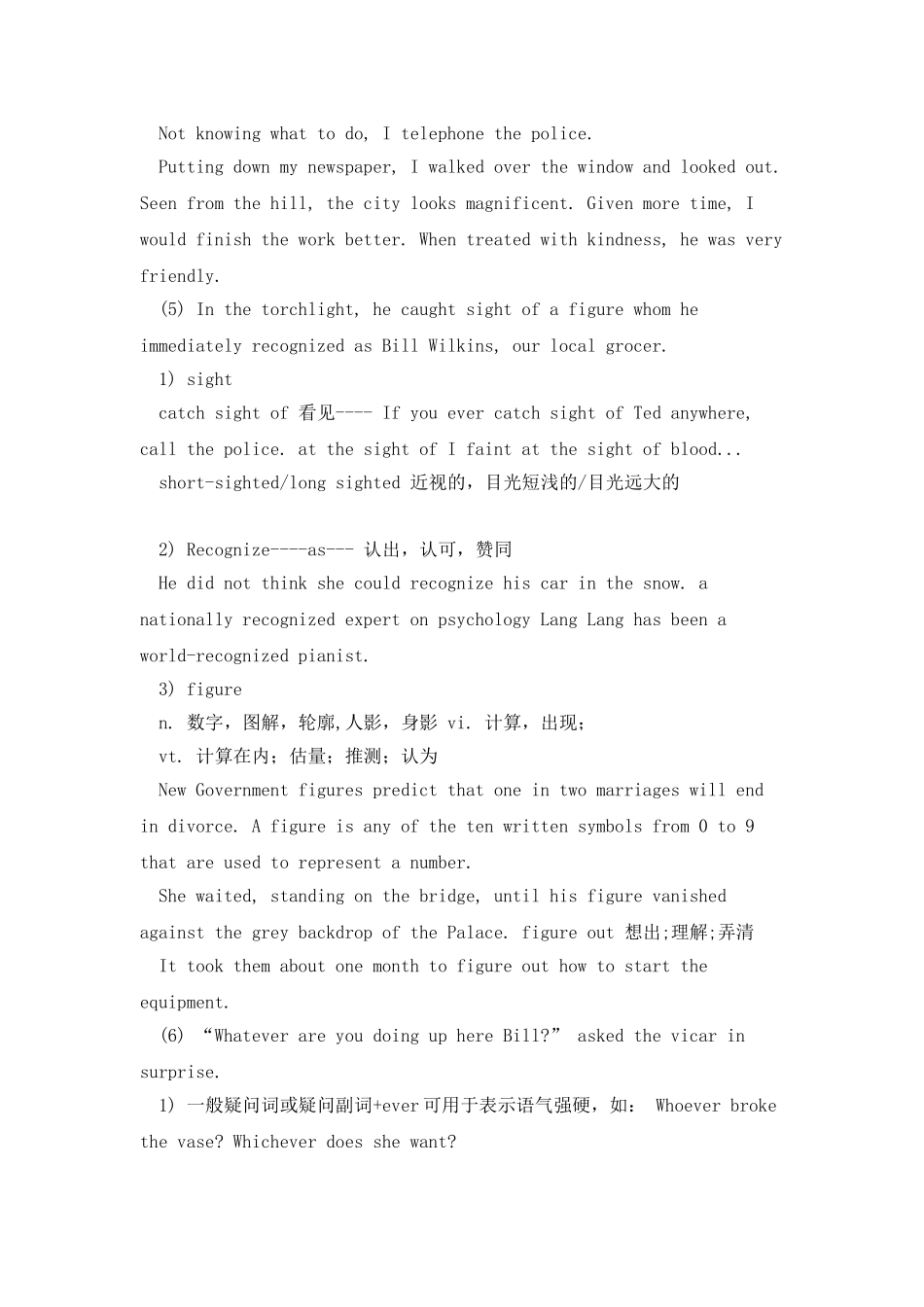新概念 3 第二课讲义Lesson 2 Thirteen equals one (1)Our vicar is always raising money for one cause or another, but he has never managed to get enough money to have the church clock repaired. 1) is always rasing money 所用的是现在进行时态的机构,但表达的是一般现在时态的内容。 这样使用正在进行时态时,除可以表达出一般现在时内容外,往往还含有一定的感情色彩(如表明说话人的赞叹、厌倦等),如: He is always boasting. 一些副词常用于这样的结构中, 以加强感情色彩。除文中 always 外,常见的还有 constantly, continually 等,如: My father is always losing his keys. 我父亲总是丢钥匙。 He is continually aksing me for money.他总是不断问我要钱。 2) raise . vt. 引起,抱起;提高(价格等);养育;筹集 vi. 上升,升高 He raised his hand to wave the crowd. If you raise your voice, you speak more loudly, usually because you are angry. If you raise money for a charity or an institution, you ask people for money which you collect on its behalf. My mother was an amazing woman. She raised four of us kids virtually singlehandedly. 3) manage to 设法做成某事,必须付出努力。 If you manage to do something, especially something difficult, you succeed in doing it. 4) have the church clock repaired Have sth done I have my hair cut every one month. I need to have my car repaired. (2) The big clock which used to strike the hours day and night was damaged many years ago and has been silent ever since. 1) used to do 仅用于表示过去的习惯性动作。He used to play cards a lot. be used to do 被用来做某事 In the past, cow is used to do farmwork. be used to doing 习惯于做某事 My mother is used to getting up early. 2) strike vt. 罢(工、课等);撞;攻击;来到;疾病、灾难等爆发 vi. 罢工;打击;朝某一方向前进 n. 攻击;罢工[课,市];发现 on strike Workers have right to str...


